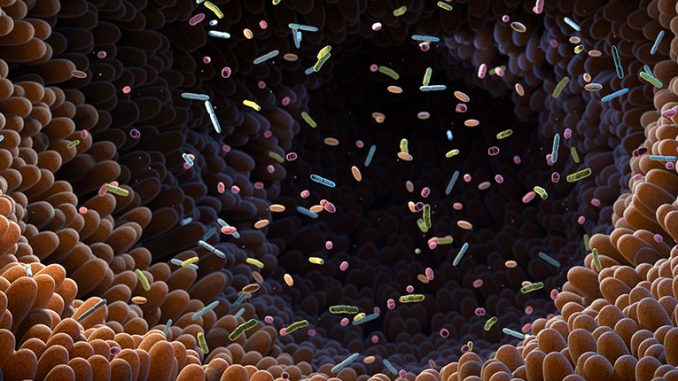
In addition, we must trace our origins to see what exactly is nurturing all this. Over 100 million years of evolution, trillions of cells have been created. Inside us are many microorganisms (mainly bacteria, viruses, fungi and even others apart from the gut microbiota). They are not simply on-lookers; they carry on a lively dialogue with our own immune system. A harmonious microbiota calms any immune attack. However, when dysbiosis–as it is often called–reigns over us, inflammation occurs and susceptibility to infections as well as long-term disease goes up.
Gut Microbiota and Immunity
The gut microbiota thus has an irreplaceable role in developing immunity and maintaining its operation. Bacteria that are good for the gut health help the mucosal lining stay firmly in place. At the same time, they can directly affect the behavior of immune cells and generate a number of anti-inflammatory compounds. In contrast, when the balance of beneficial bacteria is disrupted it leads to so-called “leaky gut syndrome.” This condition allows toxic materials and pathogens to move from the distressed gut wall into the blood stream causing widespread inflammation–a reversion of established patterns in health.
How does diet affect gut health?
Diet is one of the most crucial factors in supporting a healthy gastrointestinal system. A diet high in fiber, prebiotics and probiotics contributes to a varied microbiota with both beneficial microorganisms and safe ones. Foods such as fruit, vegetables, whole grains and fermentative products like yogurt or kefir supply energy for beneficial gut bacteria to feed on Other contrariwise, diets containing much processed food, sugar and unhealthy fat can disrupt the balance of the microbiota and regulate how our immune system works.
The Role of Stress and Lifestyle
Both physical and mental stress can disturb the intestinal environment. Chronic stress also reshapes the structure of one’s gut microbiota, increases intestinal permeability and sets off inflammation. Many lifestyle habits such as sleep deprivation, a sedentary lifestyle and ‘artistry’—drink, affect the health of the gut and people’s resistance to infection. A balanced lifestyle, that includes regular exercise, enough sleep, and a well-stretched time management to stave off stress, can furnish your intestines and therefore also your immune system with strength.
Probiotics and Prebiotics: A Perfect Pair
Probiotics are microorganisms that exist naturally in the body and when taken in the right amounts present health benefits. For example, they can help to bring back a stable colony of bacteria in the gut particularly where such balance has been influenced by antibiotics Prebiotics, in contrast, consist largely of non-digestible fibres which provide nutrients for the beneficial bacteria present in our bowels Probiotics and prebiotics, taken together, heighten digestive health and support good immunity Eating foods rich in probiotics, such as sauerkraut or kimchi, and prebiotic foods like onions and bananas is active self-care for your gut.
Emerging Research and Future Directions
Two hot topics of contemporary research are gut and related immune system. Research is continuing, and new developments in our awareness continue to occur all the time.
A field of investigation is now trying to learn just how the microbial community in our intestines might play a role in autoimmune diseases and allergies, or even in keeping people sane. Unfortunately we are only at the beginning though. So little is known and validated scientifically about this complex and poorly understood subject that much remains for future research.
Proat: Customized gut health programs like microbiome analysis and therapy of specific problems holds promise for greater immunity and less disease in future generations.
Nutrition for Gut Health
Another way to maintain a broad range of gut flora is to eat foods of all colors-the more plant-based the better: fresh fruit and vegetables, nuts, and whole verges that have not been too much processed are best possible choices. And even some meats like chicken can be eaten if they are cooked properly, since they do not contain nutrients which are readily digestible by human beings.
Practice stress-reduction techniques like meditation or deep breathing. When feeling stressed out, your body is in a state of high sympathetic nervous system activity and results in strain on both the heart and gut.
Drinking plenty of water helps digest your food and ‘waters’ the health of connective tissues.
Never eat pre-packaged foods or processed meats. The consumption even of a very small amount of some food additive (e.g., high-fructose corn syrup or a variety of chemical compounds used to keep processed meat fresh) has been shown to over time cause an unhealthily acidic state in people’s bodies. These people’s gut flora becomes significantly less robust, subsequently the conditions for rampant infestation by undesirable strains of gut-dwelling bacteria grow.
Should I take probiotics?
It follows, for the exclusion of bacterial pathogens actually regulated by the gut flora is like a sword hanging over us. As such, by making informed dietary and lifestyle choices, you can help support a healthy gut, strengthen your immune system, and in the end make life better for yourself.